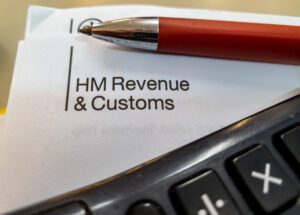Prosecutions of professionals who enable tax evasion have plummeted by at least 75 per cent over the past five years, according to new figures, prompting concerns that HMRC is failing to tackle the networks that support illegal tax activity.
In 2023–24, fewer than five criminal cases were brought against enablers — individuals who knowingly help clients evade tax — down from 16 cases in 2018–19, which marked the peak of enforcement activity. Tax officials now admit that the previously reported figure of 29 prosecutions in 2018–19 was incorrect, a discrepancy that has fuelled criticism of HMRC’s transparency and reliability.
The drop in prosecutions is part of a wider decline in enforcement by HMRC, which has faced significant operational challenges following Brexit and the Covid-19 pandemic. Critics say the lack of visible action against enablers — who include wealth advisers, tax planners, and other financial professionals — undermines the credibility of the UK’s tax system.
Labour peer Lord Prem Sikka, who previously submitted a parliamentary question on the number of prosecutions, called the misreporting of figures “contempt of parliament” and criticised HMRC for failing to correct the public record in a timely fashion. “There is no defence for this,” he said. “HMRC data is not reliable and has never been.”
In response to a freedom of information request from the Bureau of Investigative Journalism, HMRC declined to provide exact figures for 2023–24 on the grounds that doing so risked identifying individuals involved. The decision has been described as a “wild misrepresentation of confidentiality” by Claire Aston, director of TaxWatch, who also highlighted the sharp decline in enforcement action as “a failure to target those profiting from crime”.
The revelations come at a critical time for HMRC, which is under pressure from the Labour government to recover billions in lost tax revenue. The UK’s tax gap — the difference between the tax collected and what should be collected — stood at nearly £40 billion in 2022–23.
As part of its first budget in over a decade, Labour announced plans to raise £6.5 billion by cracking down on tax avoidance and evasion, with an additional £1 billion pledged in last week’s spring statement.
Dan Neidle, founder of Tax Policy Associates and a former head of tax at Clifford Chance, warned that minimal prosecutions send the wrong message: “The thriving industry of people enabling tax evasion will continue until there are visible prosecutions. A handful of prosecutions won’t change anything.”
Despite the drop in enforcement outcomes, HMRC insists it is taking the issue seriously. A spokesperson confirmed that over 150 enablers are currently under criminal investigation and that lessons have been learned from past data errors. “Tackling enablers of tax fraud remains a top priority for us. We’re determined they face the consequences as much as those carrying out tax fraud,” the agency said.
Still, experts argue that prosecutions remain a critical tool — not only for recovery but also for maintaining public confidence in a fair tax system. With enforcement figures at historic lows and parliamentary confidence shaken, HMRC’s ability to deliver on that mission is under increasing scrutiny.
Read more:
Prosecutions of tax evasion enablers fall 75% in five years, raising questions over HMRC enforcement

